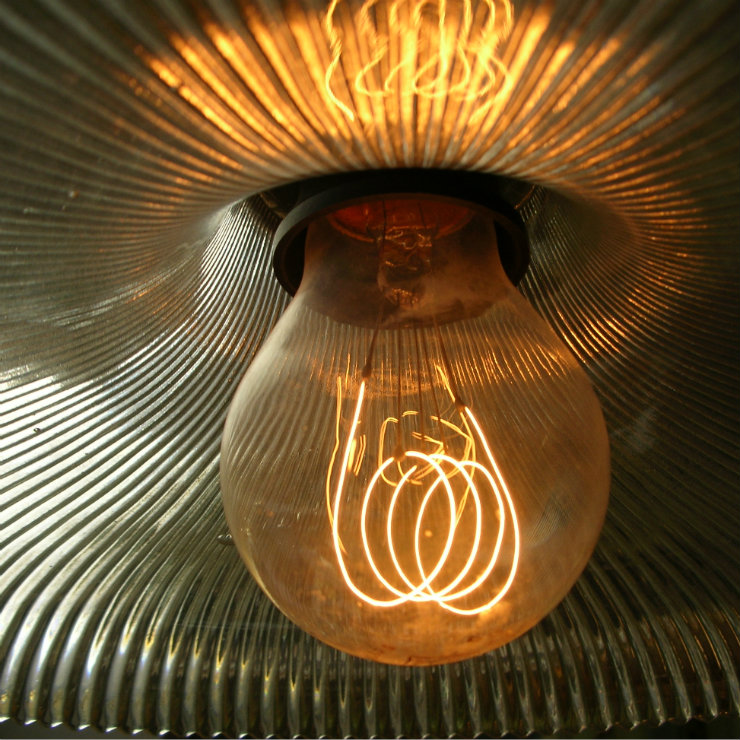Tydzień w gospodarce
Category: Raporty

(Diogo Valério, CC BY)
The average price of electric energy for consumers in the European Union was EUR20.4 per 100 kilowatt hours (kWh), states the Eurostat in the summary of its statistical data. This is with all the taxes, including VAT, and the charges for a standard household, consuming between 2.5 thousand and 5 thousand kWh of energy per year. The average price dropped by 0.5 per cent compared to the first half of 2016.
In Europe a bigger decline in prices occurred in the case of natural gas. In the first half of 2017, it costed an average of EUR 5.8 per 100 kilowatt hours (in order to facilitate comparisons the Eurostat gives the prices of electricity and natural gas in the same units). In comparison with the first half of 2016, natural gas prices in the European Union fell by 6.3 per cent on average.
The prices of energy for consumers in the European Union are diverse, which results in part from the availability of energy carriers on local markets (energy can be transported, but this is associated with costs), and in part from historical legacies – generally energy was cheaper in the eastern part of Europe than in the West.
Households in Denmark and in Germany pay the most for electricity (approx. EUR30.5 per 100 kilowatt hours of energy). Last year the price of electric energy in Germany went up by 2.7 per cent, and in Denmark it decreased by 1.3 per cent. Households in Belgium also pay more than the average for electricity (nearly EUR28 per 100 kWh). Between the first half of 2016 and the first half of 2017 the price increased there by as much as 10 per cent. Electricity is also expensive in Ireland, Spain and Portugal, where consumers pay about EUR23 per 100 kWh. The price of electricity in Spain increased by 5.1 per cent over the past year, while in other countries it decreased slightly.
The countries of Central and Southeast Europe are at the opposite end. Among the European Union member states electric energy is the cheapest in Bulgaria (EU 9.55 per 100 kWh), Lithuania (EUR11.16) and Hungary (EUR11.25). For comparison – in neighboring countries that do not belong to the European Union, the price of electric energy is even lower: in Kosovo it costs EUR6.62 per 100 kWh, in Serbia – EUR6.64, in Macedonia – EUR8.20, in Albania – EUR8.44, in Bosnia and Herzegovina – EUR8.59.
However, the price of electricity is the lowest in Ukraine, where in the first half of 2017 it only amounted to EUR3.93 per 100 kWh. At the same time, Ukraine recorded the highest increase last year – by as many as 57.8 per cent in EUR.
In addition to Belgium and Ukraine, the increase in the prices of energy was the highest in Cyprus (an increase of 22.0 per cent) and in Greece (an increase of 12.8 per cent). The household electricity price in Poland amounts to approx. 71 per cent of the average price paid in the European Union, but the increase in the price of a unit of energy over the last year – expressed in PLN – by as many as 6.9 per cent should be seen as significant.

As in the case of electricity, the prices of natural gas for households are highly diverse. Swedish households definitely pay the highest price for natural gas in the European Union – EUR12.1 (the equivalent of that amount in the local currency) per 100 kWh of energy. Additionally, the price of gas in that country is sharply increasing. Expressed in EUR, the price of natural gas in the first half of 2017 was 7.4 per cent higher than in the first half of 2016. Expressed in SEK, the price hike was even greater and amounted to 10.8 per cent.
The countries in which consumers pay relatively high prices for natural gas (between EUR7-8 per 100 kWh) include Denmark, Portugal, the Netherlands and Italy. With the exception of Denmark, the consumer prices of natural gas declined over the past year in these countries. The decrease was the largest in Portugal, where natural gas prices fell by 15.3 per cent last year.
The EU member, where consumers pay the lowest prices for natural gas, is Romania. There the average price in the first half of 2017 amounted to EUR3.16 per 100 kWh. The price of gas is still the lowest in Ukraine, where it only costs EUR2.31 despite price hikes.
The price of gas paid by consumers has dropped in most European countries, and especially in the CSE. Poland is among the exceptions, alongside Ukraine (increase by 29.5 per cent expressed in UAH) and Estonia (increase by 21.1 per cent). In Poland, the price of gas is still significantly lower than the EU average, but in the first half of 2017 its price – expressed in PLN – increased by 3.9 per cent.
Some insight into the energy price policy is provided by the additional information on the share of taxes and levies in the final price paid by consumers. In the case of electricity this share amounts to 37 per cent on average. Record high tax burdens included in the price of electric energy are recorded in Denmark, where 67 per cent of the price paid by households constitutes various forms of taxation. Taxes also account for more than half of the electricity prices in Germany (54 per cent) and Portugal (52 per cent). Electricity is the least taxed in Malta (only 5 per cent of the price). In Poland the share of taxes and levies in the purchase price of electricity paid by households is 24 per cent, which is below the EU average.
In the case of natural gas, the average EU share of taxes and levies in the price paid by households is lower than in the case of electricity and amounts to 26 per cent. The share of taxes in the price of gas is the highest in Denmark (55 per cent), the Netherlands (53 per cent) and in Romania (47 per cent). Taxation is the least noticeable in the price of natural gas in the United Kingdom (only 7 per cent). The share of taxes in the price of gas in Poland stands at 19 per cent and is below the EU average.
The Eurostat data




